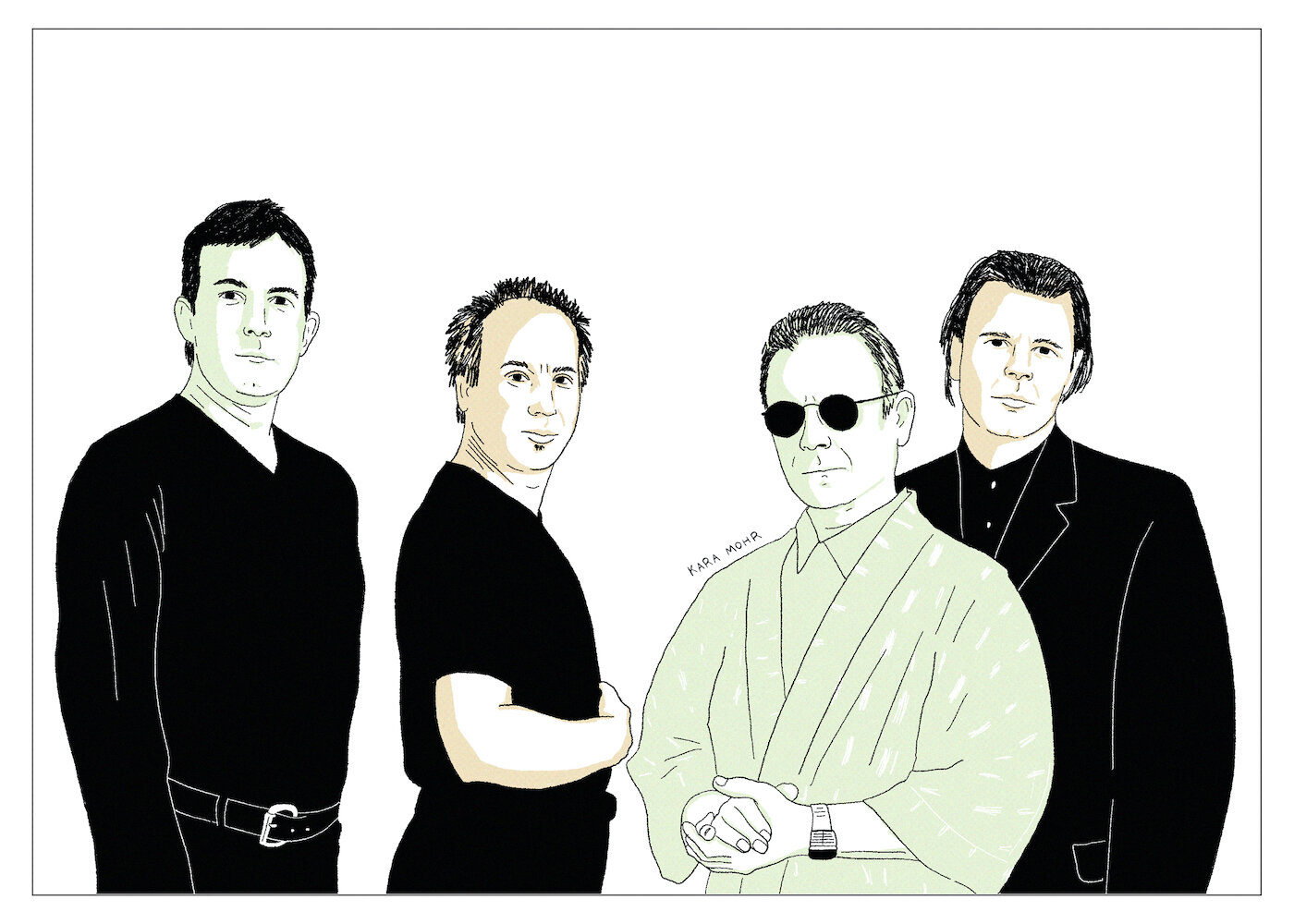
King Crimson “The Power to Believe”
Following their quirky, Belew-ish permutation in the 80s, King Crimson was reborn a decade later — harsher and, amazingly, more obtuse. As a casual listener, their final run from 1995 to 2003 sounds like music made for consideration rather than enjoyment. Nonetheless, I put my thinking cap on and tried my best with all of the albums from that period. And this arduous seeking led me to 2003’s “The Power to Believe,” Crimson’s final studio album (to date). If I was ever going to find meaning in King Crimson, surely it would be there — in Fripp’s closing statement. It simply had to be there.
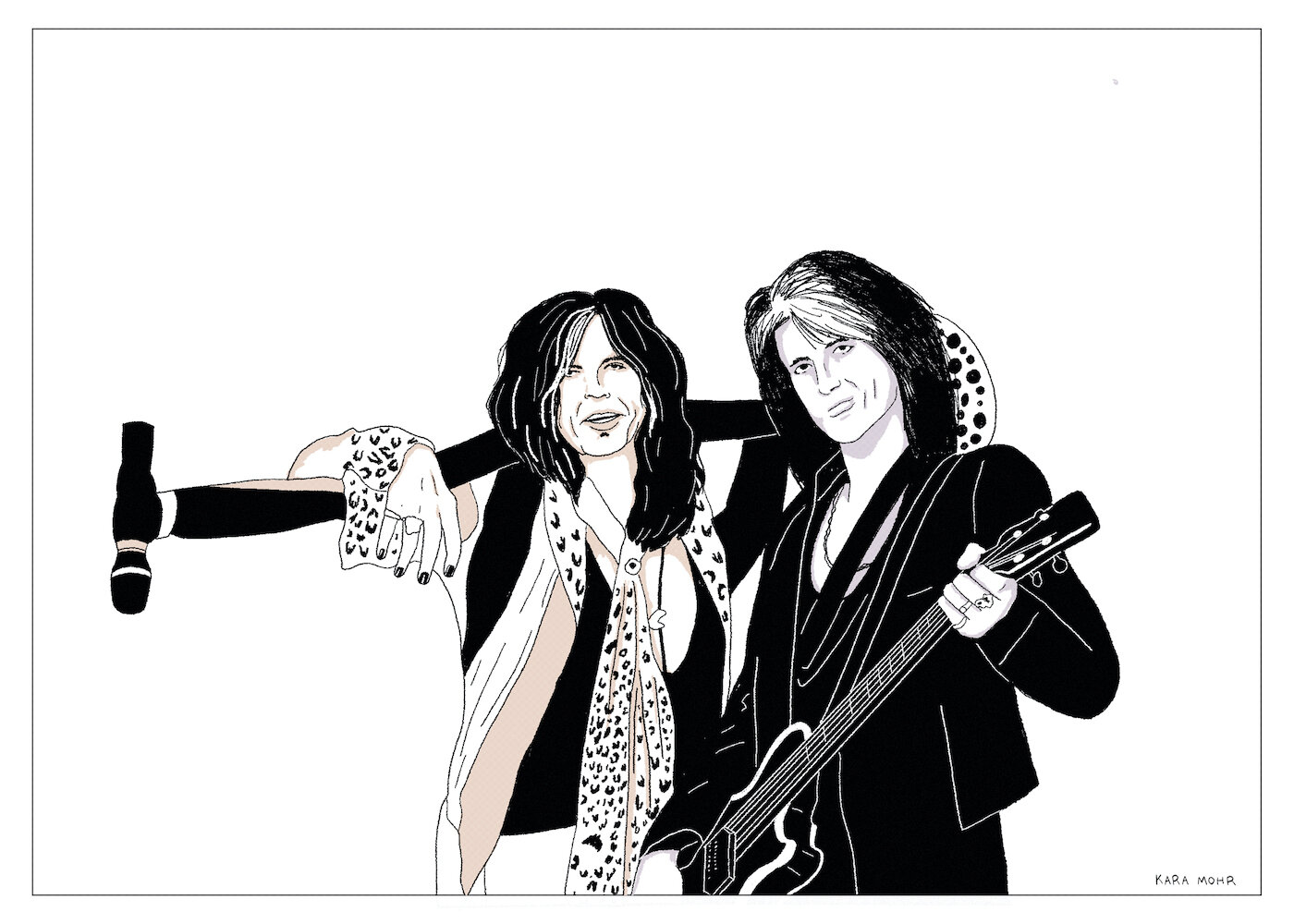
Aerosmith “Music from Another Dimension”
In the 1990s, Aerosmith transformed from almost has-beens to American Rock gods to, eventually, international superstars; all on account of their skyscraping ballads. However, following 2001’s “Just Push Play” and a Super Bowl halftime victory lap, it appeared that the years of baggage had them buckling under the weight. There would be no new music for a decade. But, eventually, the unkillable band lumbered into a studio in the summer of 2011 to record “Music from Another Dimension.”
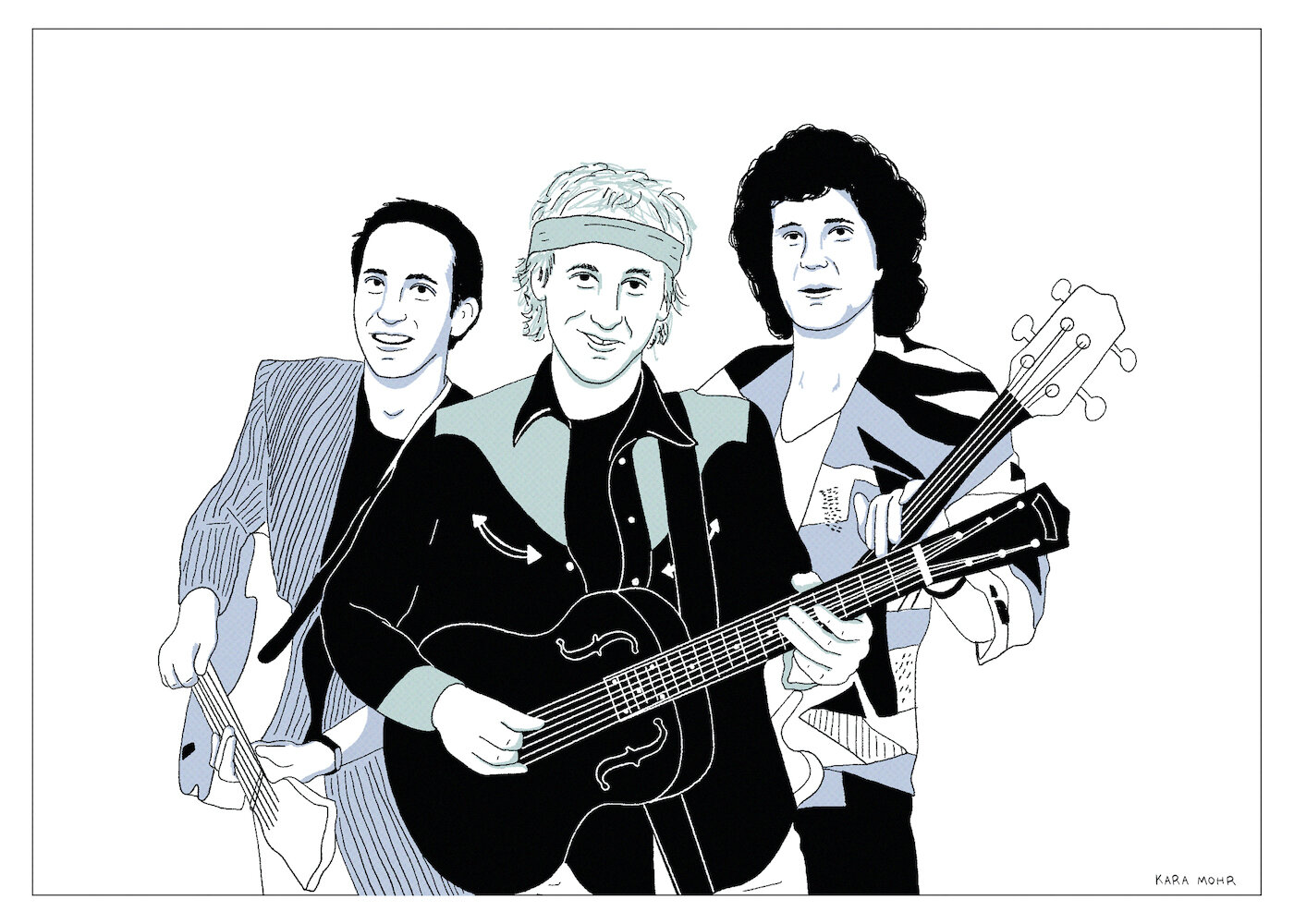
Dire Straits “On Every Street”
Dire Straits started as an anomaly. They were New Wave in design but more Folk and Country in engineering. They had a singer who couldn’t sing but who sounded great, and who also happened to also be a hell of a guitarist. For years, they achieved great success, without the trappings of fame. And all of this was well and good until 1985, when Dire Straits accidentally became the biggest Rock band in the world. Three years later, Mark Knopfler put Dire Straits on the shelf only to then, reluctantly, come back for one final album. It’s unclear whether the reformation was born out of affection or loyalty or inertia. But, whatever it was, Knopfler felt that there was unfinished business.

Jethro Tull “J-Tull Dot Com”
In the 90s, as Ian Anderson’s voice and body began to suffer, one could hear Jethro Tull slowing down. The albums were still ambitious and flute-filled and warmly received by Progressive Rock fans, but they were also less frequent. And, as time passed, Anderson’s voice no longer growled. Rather, it politely narrated the spaces in between his gymnastic melodies. The end of the Renaissance Fair came in 1999, with “J-Tull Dot Com.” a nominally conceptual album slash website advertisement that is just barely better than its title suggests.
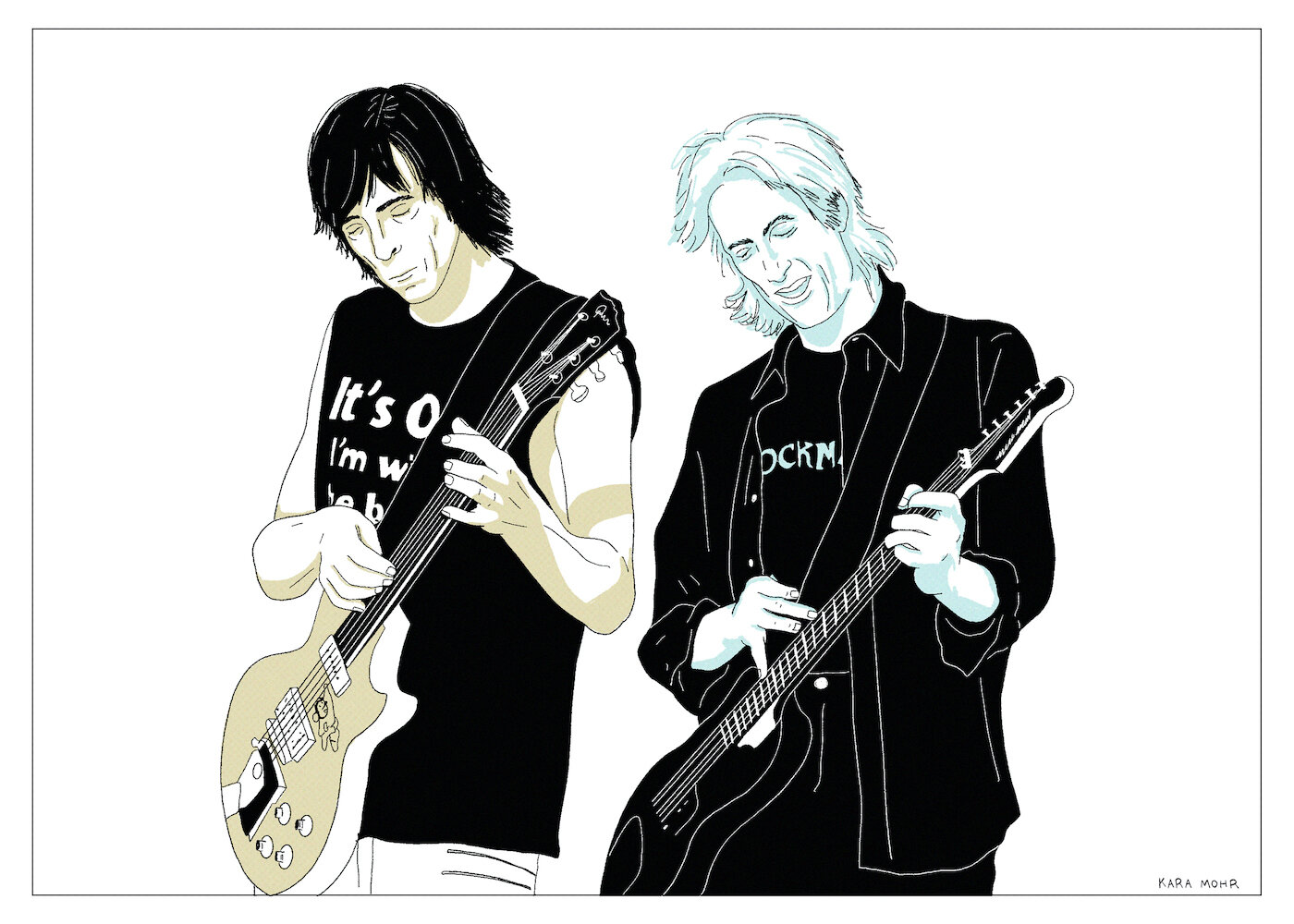
Boston “Walk On”
Like the great Patriots teams of the twenty first century, Boston, the band, had a “next man up” ethos. Guitarist, producer and mastermind Tom Scholz had his system. No man, not even lead singer Brad Delp, was irreplaceable. But Scholz platinum selling system was tested in 1994’s “Walk On.” Could they still be great without Delp? Moreover, in a world that passed them over in favor of Alternative Rock and Hip Hop, could Boston even be relevant in 1994? The cover of “Walk On,” on which the famous Boston spaceship crashes into some uninhabited planet, seemed to portend disaster ahead.
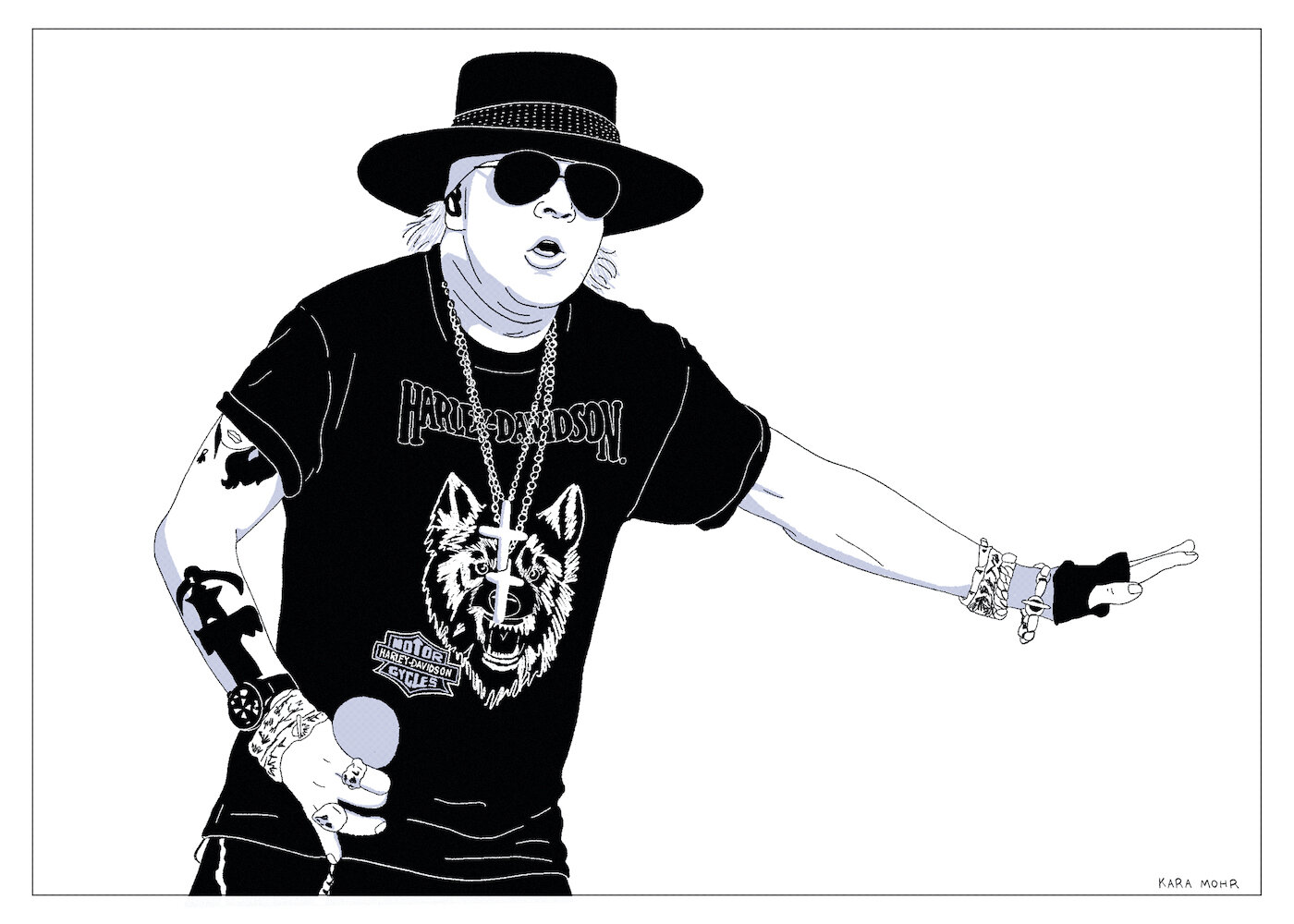
Guns N’ Roses “Chinese Democracy”
The history of “Chinese Democracy” is both exceedingly well-documented and a mystery that resides only inside the Alx Rose’s mind. Almost everything I have read about the album, I receive suspiciously, assuming it’s less than half truth. And yet, I kind of believe all of it. It is a story so complex and bombastic that it is a wonder it has not yet been made into a film. It might, in fact, be a story too sprawling and epic for film. Unless, that is, Michael Bay is at the helm. “Chinese Democracy” could make “Armageddon” seem as darling and contained as a Wes Anderson movie.
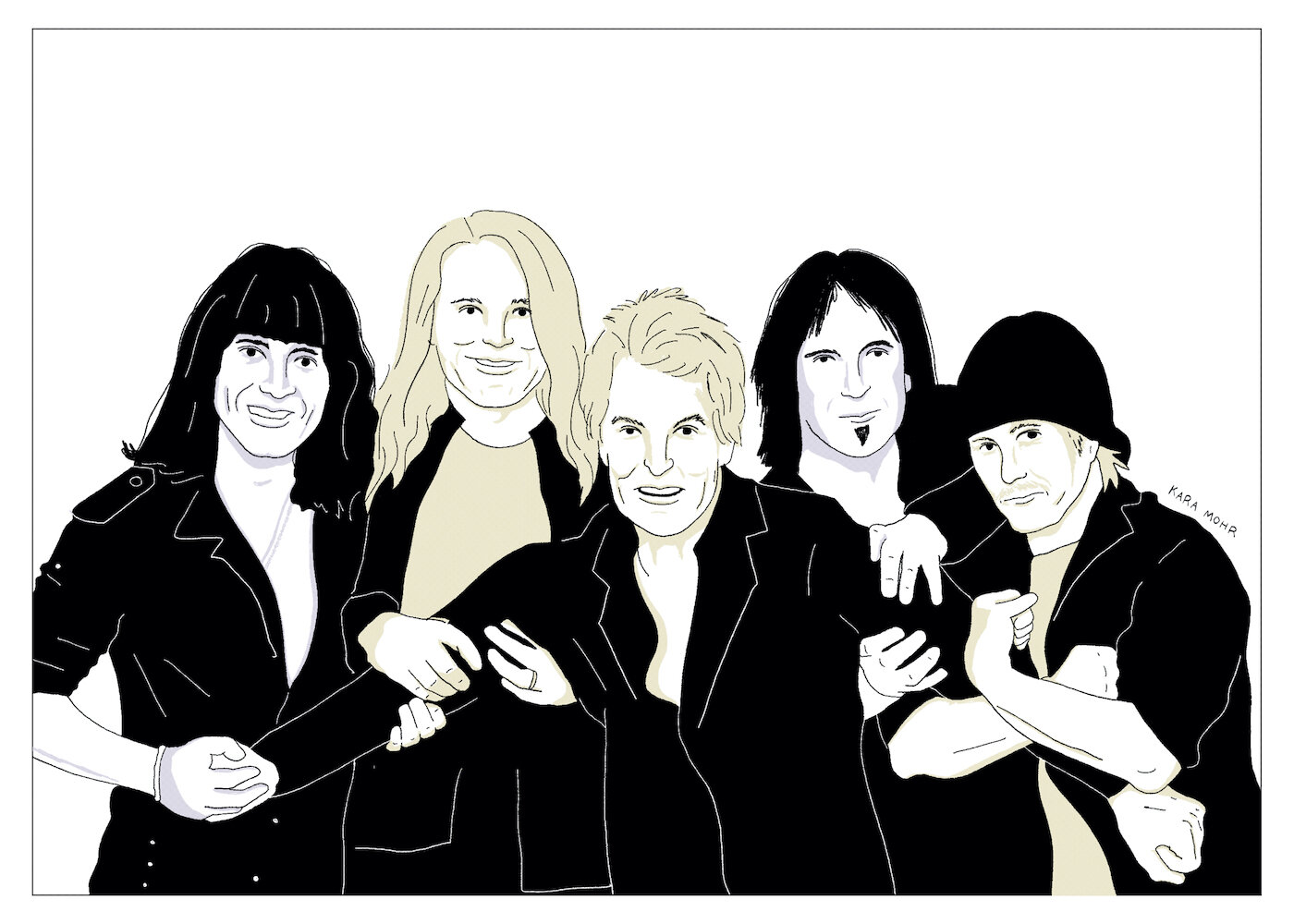
REO Speedwagon “Find Your Own Way Home”
Can it be a coincidence that REO Speedwagon, Styx, Richard Marx and, of course, Chicago all are from (near) the great Second City? Each reached the very top of the charts, sold millions and millions of records, and were both admired for the craft and derided for their sentimentality. To me, it is the triumph of REO Speedwagon that is the most curious and compelling case. On the surface, the story of REO Speedwagon can read like a tale of perseverance. But when you pull at the thread, you discover a band that, a decade into their career, found a Pop “cheat code.” With this code, they made a pair of completely irresistible, loud then quiet, then loud and quiet power ballads that would presage everything from Night Ranger to The Pixies. By the end of the 1980s, the band was decidedly out of fashion, but, amazingly, nowhere near their end.
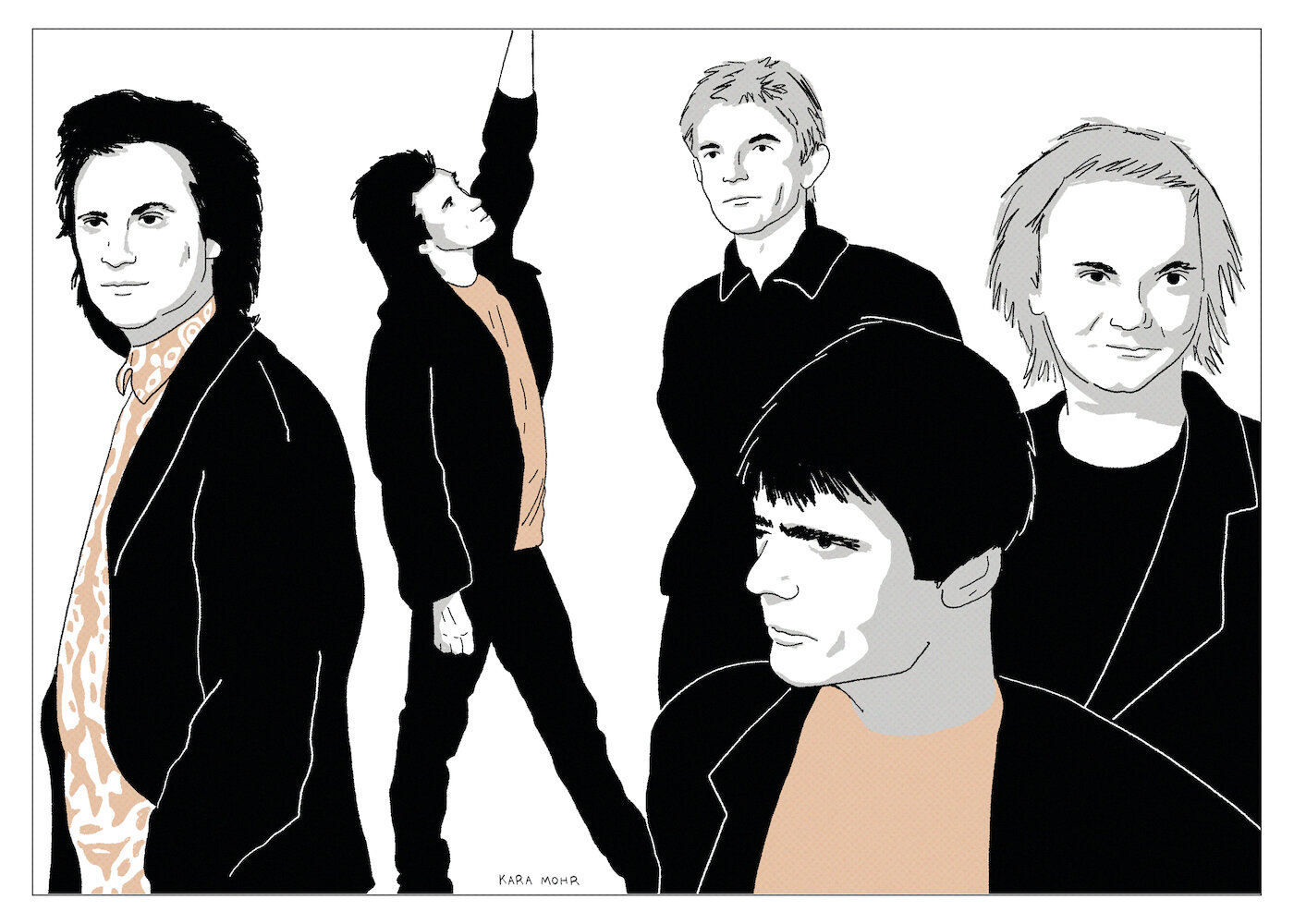
The Kinks “Word of Mouth”
In my tweens, a casual Kinks fan then, I remember seeing the cassette for “Word of Mouth” floating around the bargain bins at the mall. The cover was ghastly, desperately insisting this original British Invasion band was as modern as Duran Duran. It had some Rauchenberg-esque pink lips on it, yellow swooshes — a pop art eyesore. “Word of Mouth” has been described as chasing trends and as containing production that sounds pinched and compressed, even by the 1980’s worst standards. Its songs have been called “forgettable.” Well, I dissent! The album did not have any musical problem, it had a marketing problem.
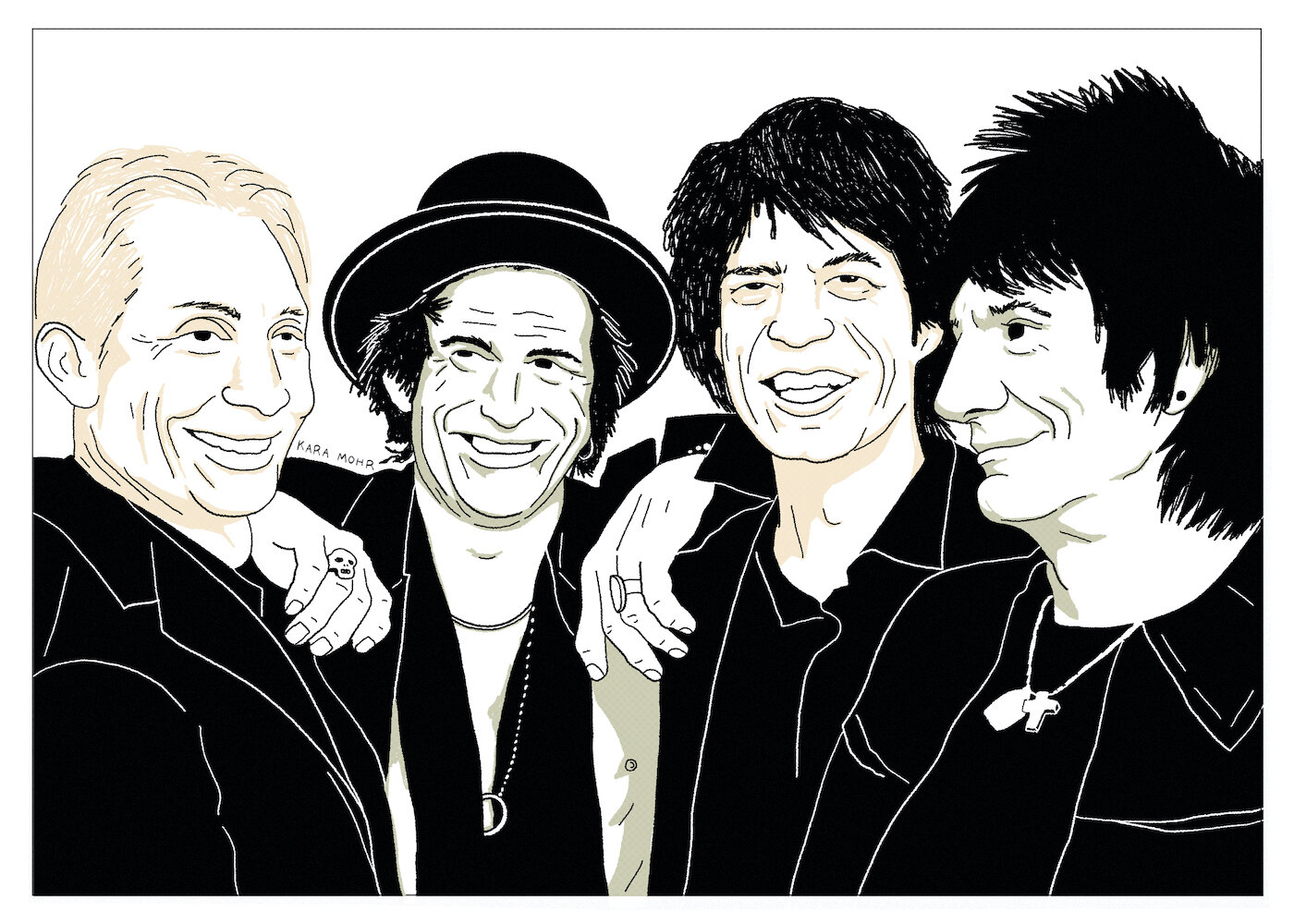
The Rolling Stones “Voodoo Lounge”
For immediate release. The minutes from the 1993 Board of Directors’ meeting for The Rolling Stones, Inc, previously confidential, have now been made public: In July of 1994, The Rolling Stones, Inc. will release a new Product, entitled, “Voodoo Lounge.” It is the first deal that the parent company has transacted since 1989. The Chairman of the Board, Sir Mick Jagger, and the C.E.O. of the company, Sir Keith Richards, were not in attendance but voted in absentia through counsel. Sir Richard Branson, who has secured exclusive marketing and distribution rights for the Product, did attend. A man who identified himself as the driver of the lawyer for Mr. Charlie Watts also attended, and noted that Mr. Watts demanded that the Corporation not embarrass itself, as it had previously with the “Dirt Work” and “Steel Wheels” products.
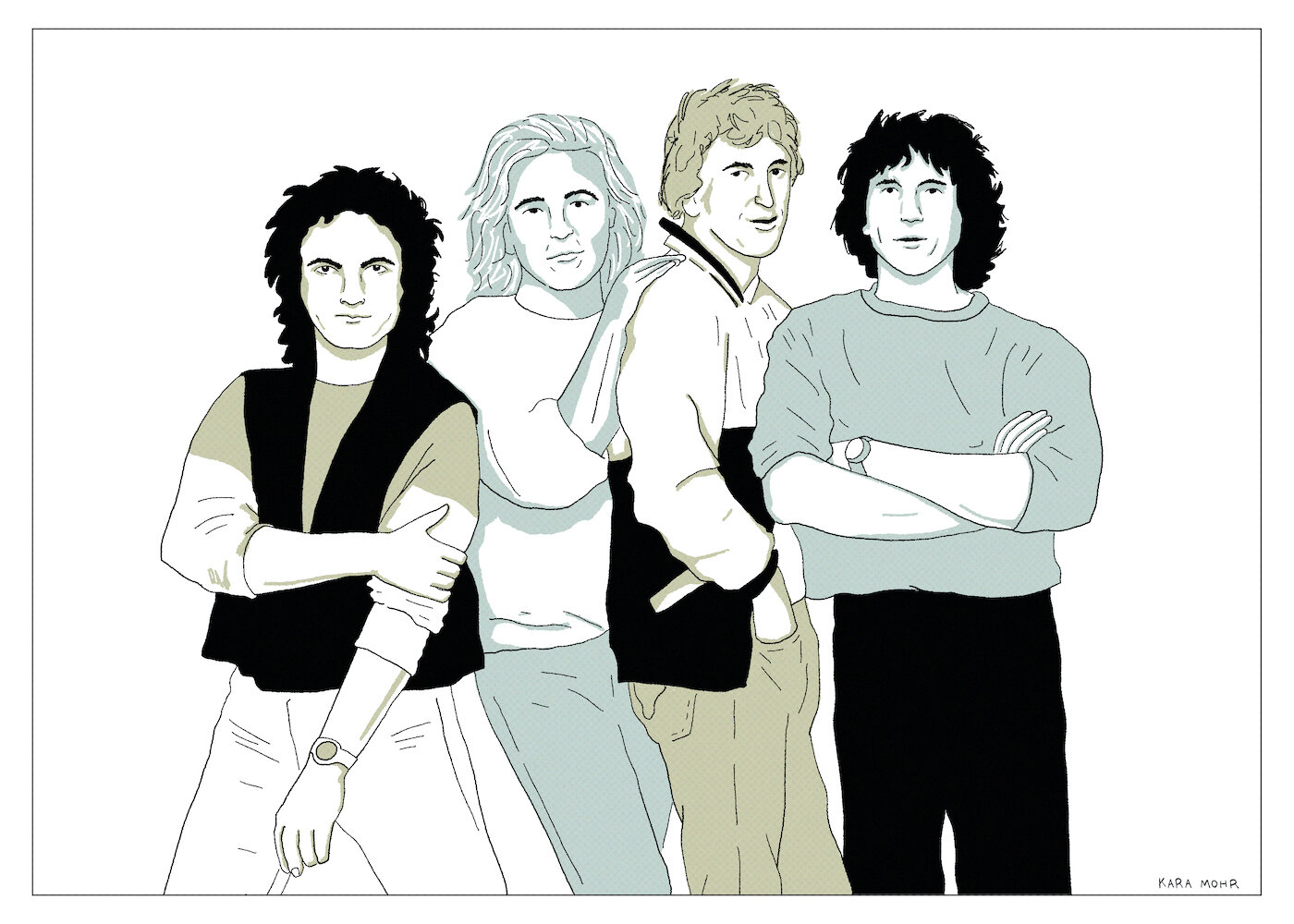
Foreigner “Mr. Moonlight”
Foreigner were a perfect Rock radio machine, formed in a petri dish that was mostly the DNA of Bad Company, Air Supply, Queen and The Who. However, by 1990, singer Lou Gramm, tired of battling his co-songwriter, Mick Jones, left the band. Two years later, ensconced in Sunset Marquis Hotel, would reconcile. And, in 1995, the band returned with “Mr. Moonlight,” an album that would be derided as the worst of the band’s career. And yet, as disappointing as that all sounds, there is still, if you listen closely, something very special about past prime Foreigner. Having the best Rock and Roll singer and songwriting team of the late 1970s was almost good enough.
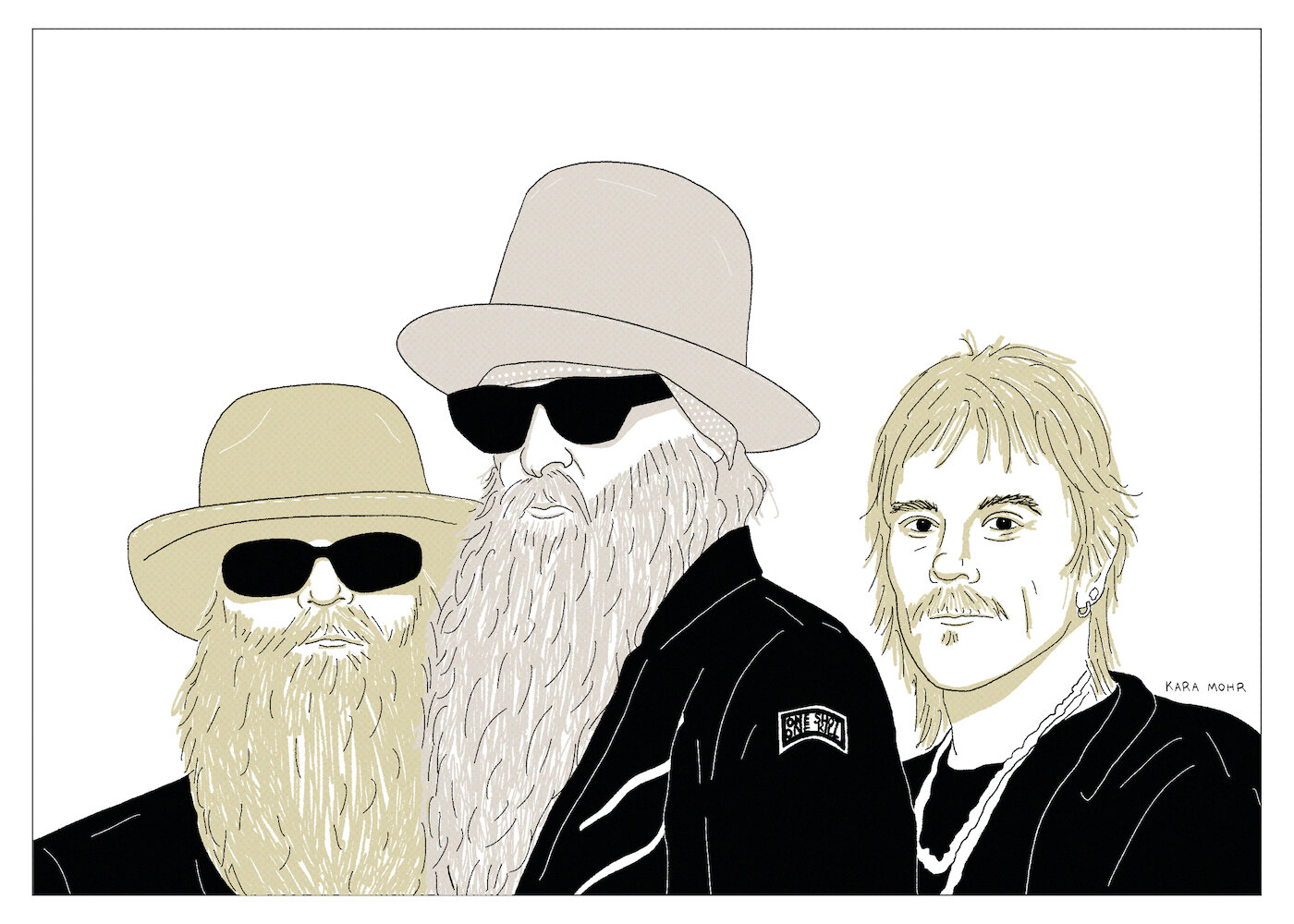
ZZ Top “La Futura”
Following their long, slow popular decline and the Garage Rock revival that owed more than a little to the band, it only made sense that ZZ Top would be ripe for reclamation in the 2000s. What made even more sense, in fact so much sense that it seems too obvious, was that the man behind the reclamation project was none other than Rick Rubin. Having succeeded with Johnny Cash and tried his darndest with AC/DC, Rubin offered the beard and the adoration required for the job. In 2003, he began working with ZZ Top on “La Futura.” It would be nearly a decade before the album would see the light of day.
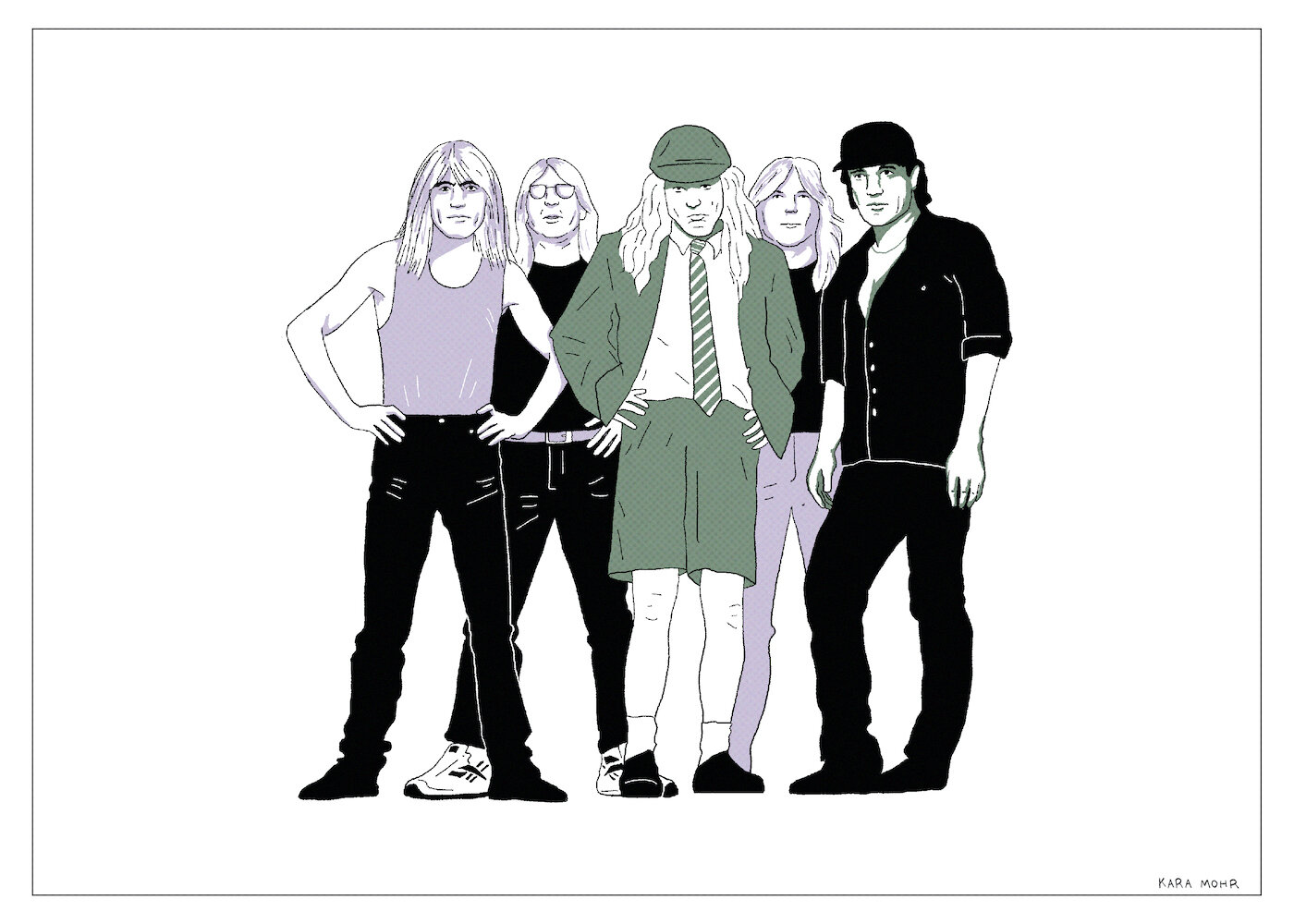
AC/DC “Stiff Upper Lip”
No band was better engineered to achieve its end goal than AC/DC. The Beatles were far more musical. The Stones were more ambitious. Led Zeppelin was grander. But AC/DC — part teenage erection and part auto factory — only knew how to do two things: rock and roll. By 2000 — a year of declining CD sales, N Sync, Limp Bizkit and Christina Aguilera — could have been a watershed moment for the band. But, it wasn’t. They released “Stiff Upper Lip” and just kept doing what they were built to do.
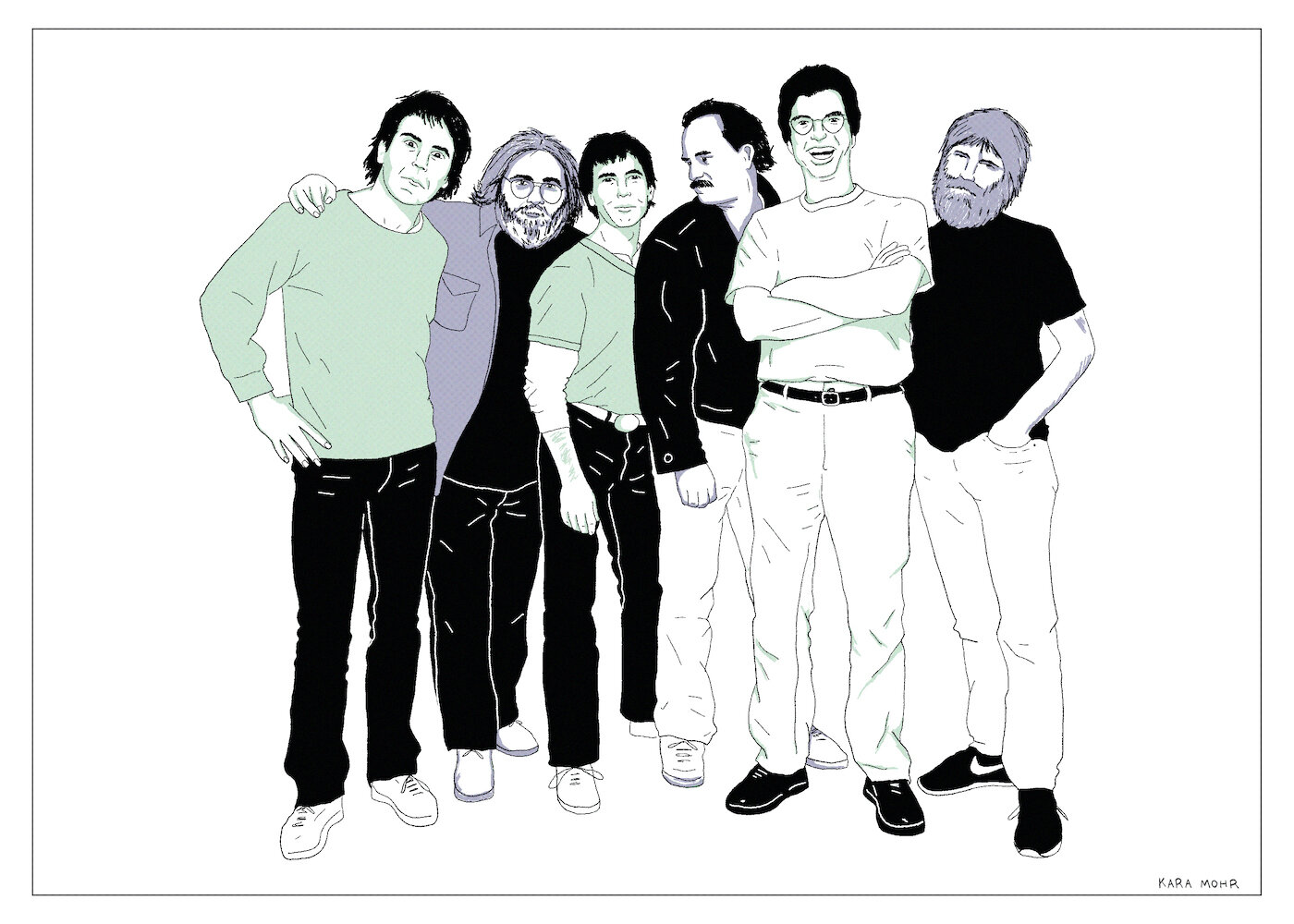
The Grateful Dead “In the Dark”
1987. The Hippies were all grown up. Their kids now wore the tie dye shirts with the bears and skulls. The Dead were an industry by this point, albeit one that showed signs of great decay. Their last studio album, seven years earlier, was unimaginably tepid. In 1986, forty-four year old Jerry Garcia fell into a medically induced coma, caused by his worsening addiction. However, a year later, the band released “In the Dark,” their penultimate studio album. It was the beginning of the final chapter of a book that would end in 1992, but what a dramatic and unlikely final chapter it was.
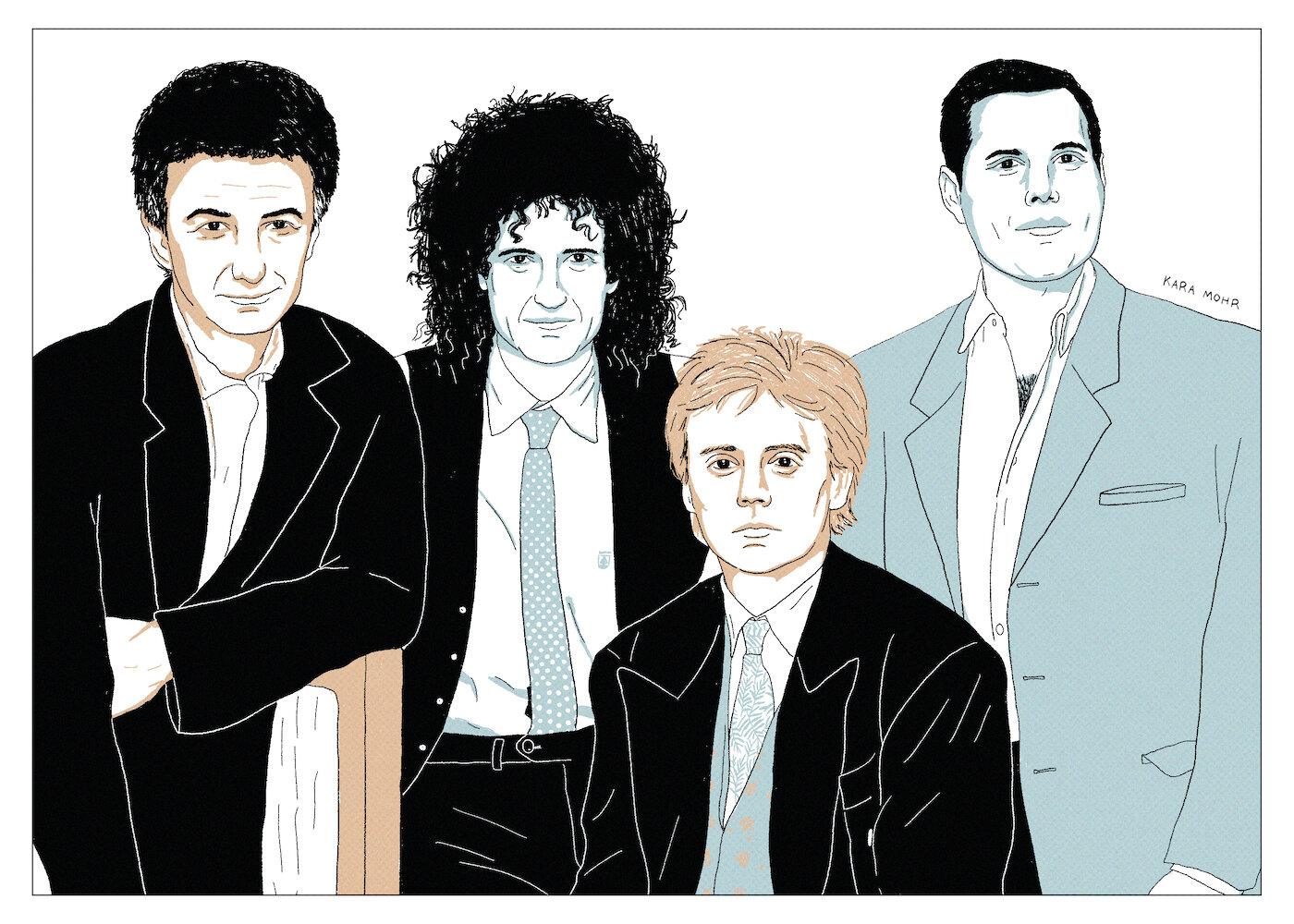
Queen “The Miracle”
In the 1980s Queen frayed. Three of the four members released solo albums. Their chart positions, especially in America, had taken a precipitous downturn. For much of the decade, the band sounded like four polite gentlemen, contributing doll parts to albums which were sewn together by synthesizers. However, 1989s “The Miracle” was supposed to be different. It was the first album wherein all songs were credited simply to Queen, rather than to the individual players. What was not advertised in 1989, though widely rumored, was Freddie Mercury’s declining health. In retrospect, “The Miracle” is surprisingly enduring and entirely consumed with the optimism, loneliness and love that would define the lead singer’s final years.
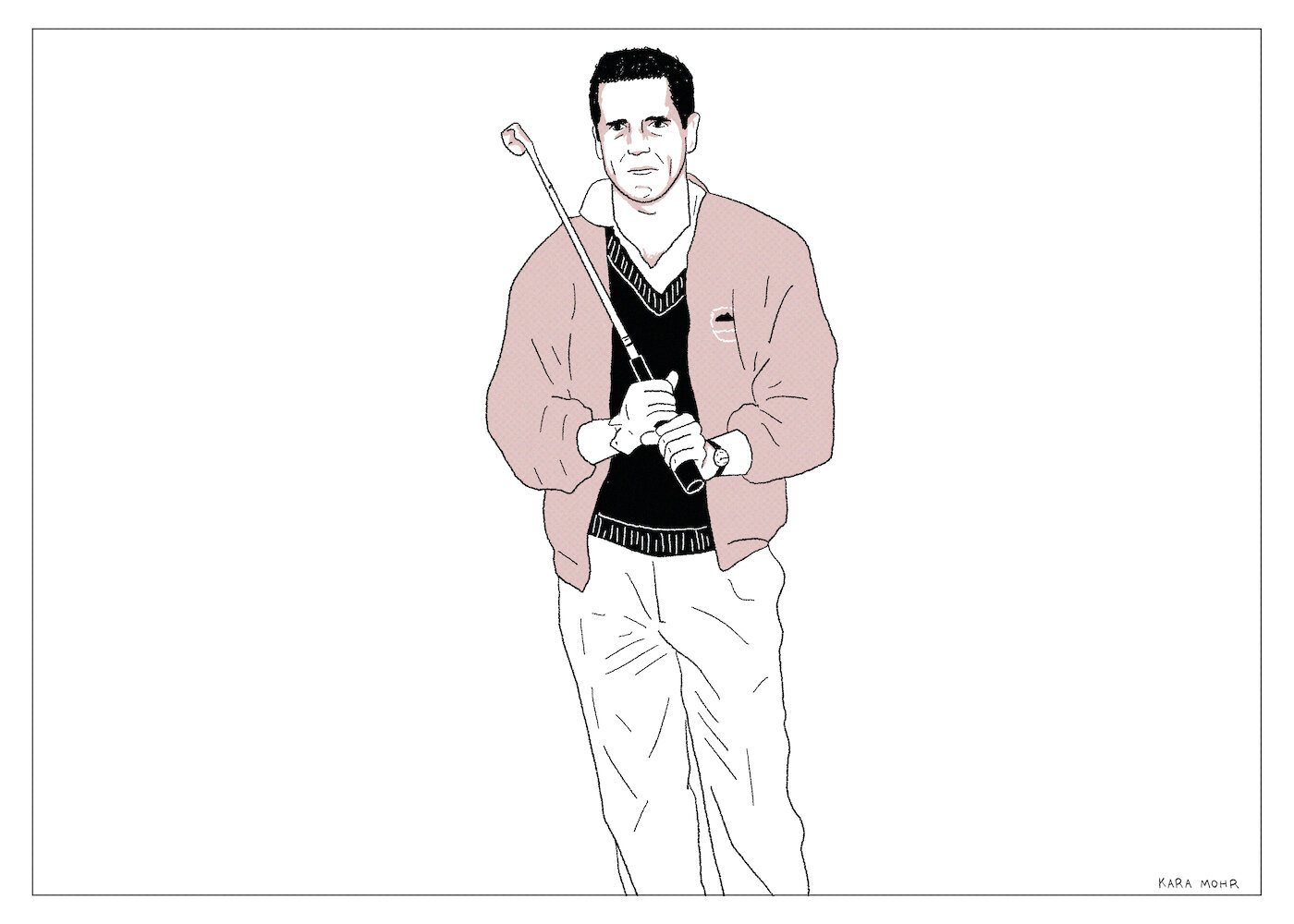
Glenn Frey “Strange Weather”
Glenn Frey served as the C.E.O. of The Eagles. While his fingerprints are everywhere, however, the band’s best songs were written by others and sung by Don Henley. Frey was the team’s general manager — he did the dirty work — while Henley was its preternatural talent. And Frey was good at his job. It came naturally to him. He had charisma. He played good enough rhythm guitar. He could play some keys. His voice was better than adequate. But, more than anything, Glenn Frey knew how to work with Don Henley. Until he didn’t.

(Yusuf) Cat Stevens “The Laughing Apple”
There has never been another Pop star who went away for twenty eight years and then returned. Obviously, Cat Stevens didn’t really go away. During his absence from popular music, Yusuf Islam was always looking for that road back. And, in 2016, he found the bridge. He reunited with his closest 1970s collaborators and announced that he would release a new album under the name “Yusuf / Cat Stevens.” As hedged as it looks on the page, it was received as a full throated return for his long suffering fans.
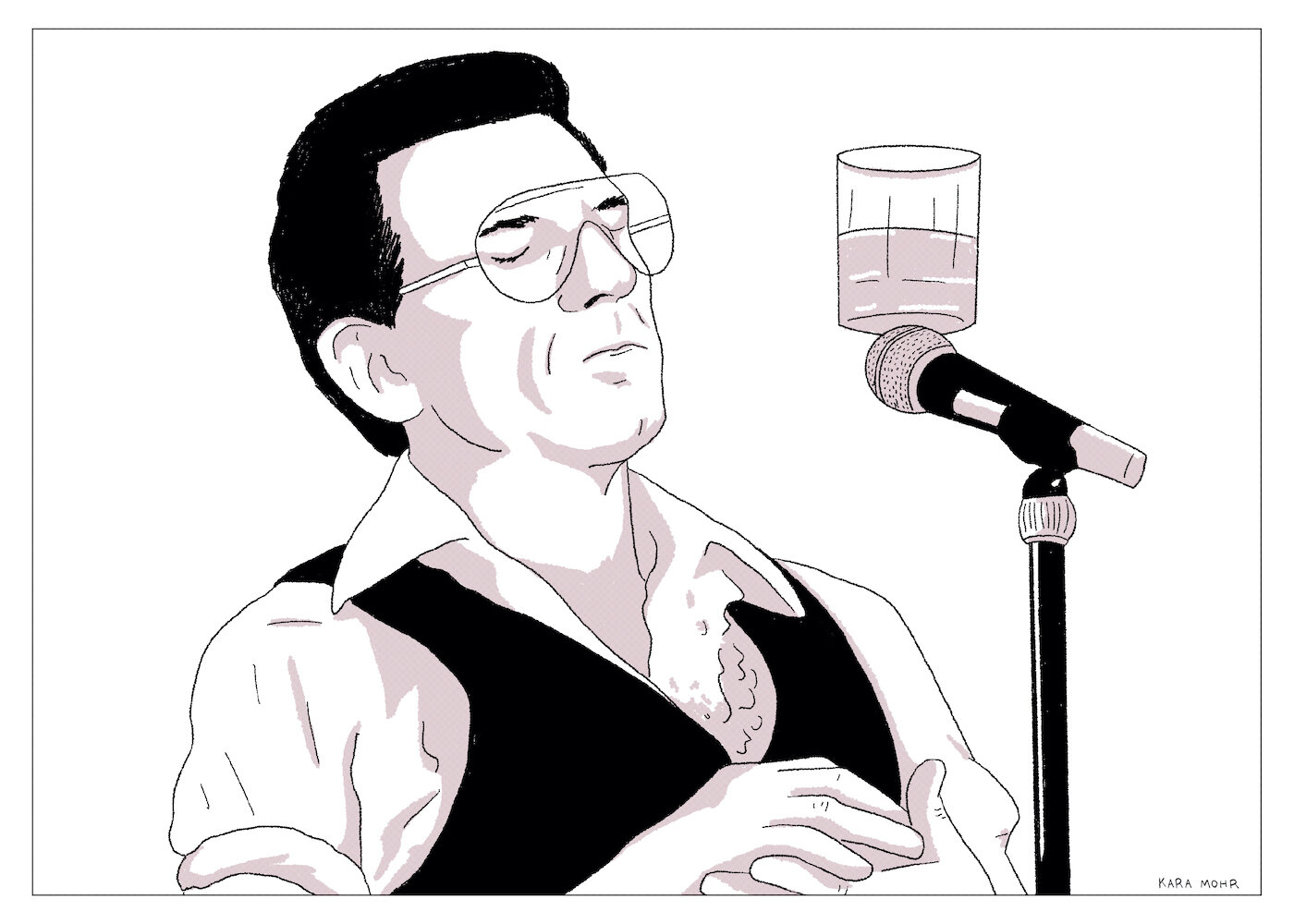
Jerry Lee Lewis “Killer Country”
Starting in 1968, following a decade in polygamy exile, Jerry Lee Lewis made a very successful, very straight Country music turn. For over a decade he was a reliable hit maker alongside Merle and Dolly. In 1982, he’d be under suspicion for killing his fourth wife. In 1984, he would be tried for tax evasion (he was found innocent). And, in 1988, he declared personal bankruptcy. But, between 1979 and 1980, in a third career peak, Jerry Lee Lewis cut three excellent, if overlooked, albums, including “Killer Country.”
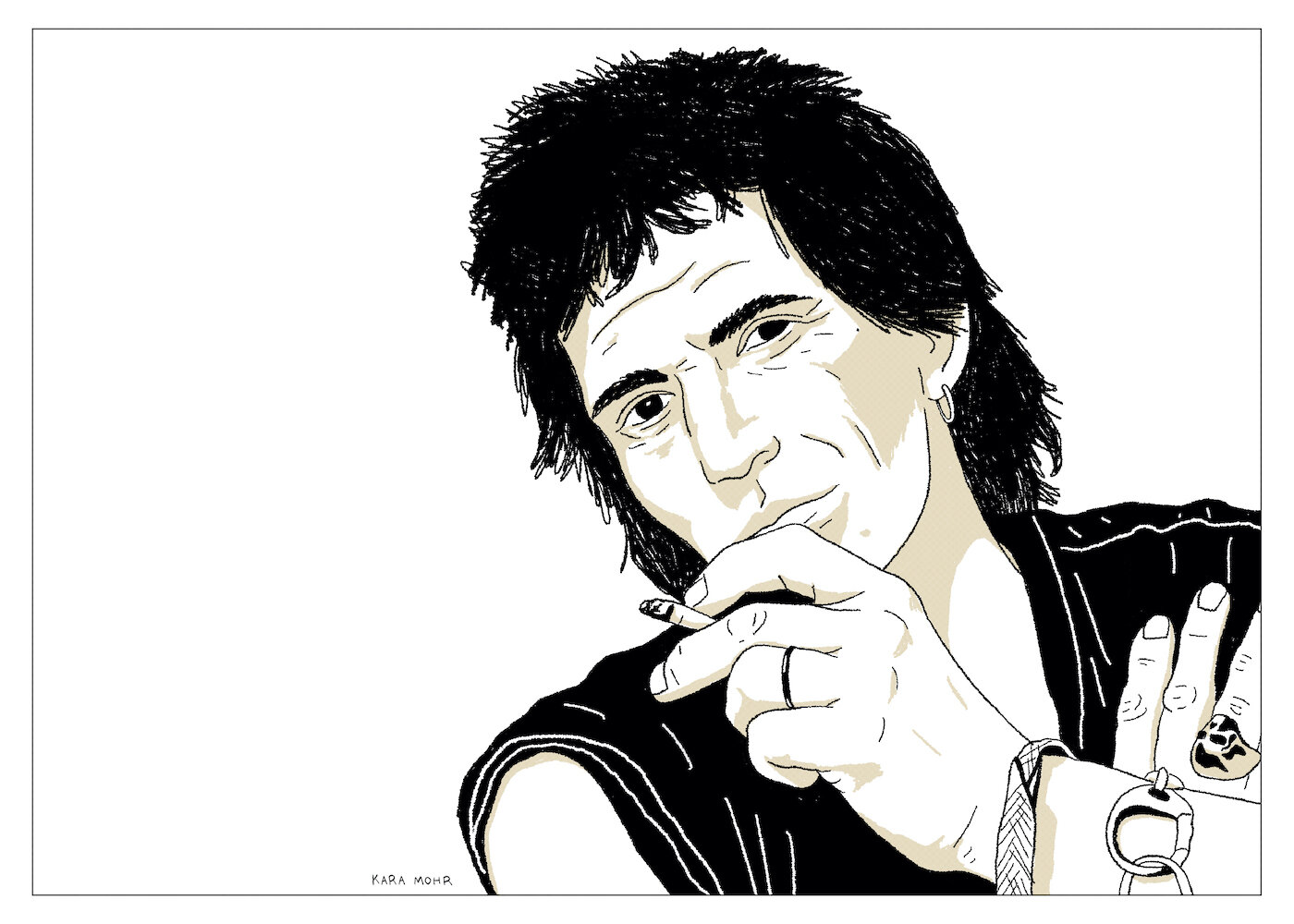
Keith Richards “Talk is Cheap”
Tired of the drama and unqualified for any other career, in 1987 Keith Richards did the previously unthinkable. He stepped out as a solo artist and frontman. His main collaborator was virtuoso drummer, Steve Jordan. The other players, including Ivan Neville, Waddy Wachtel, Charley Drayton and Sarah Dash, came to be known as The X-pensive Winos. The Winos often sound like an ace Free Jazz band playing with mis-assembled Rolling Stones’ parts. To this day, there is still no band in the world that sounds like them.
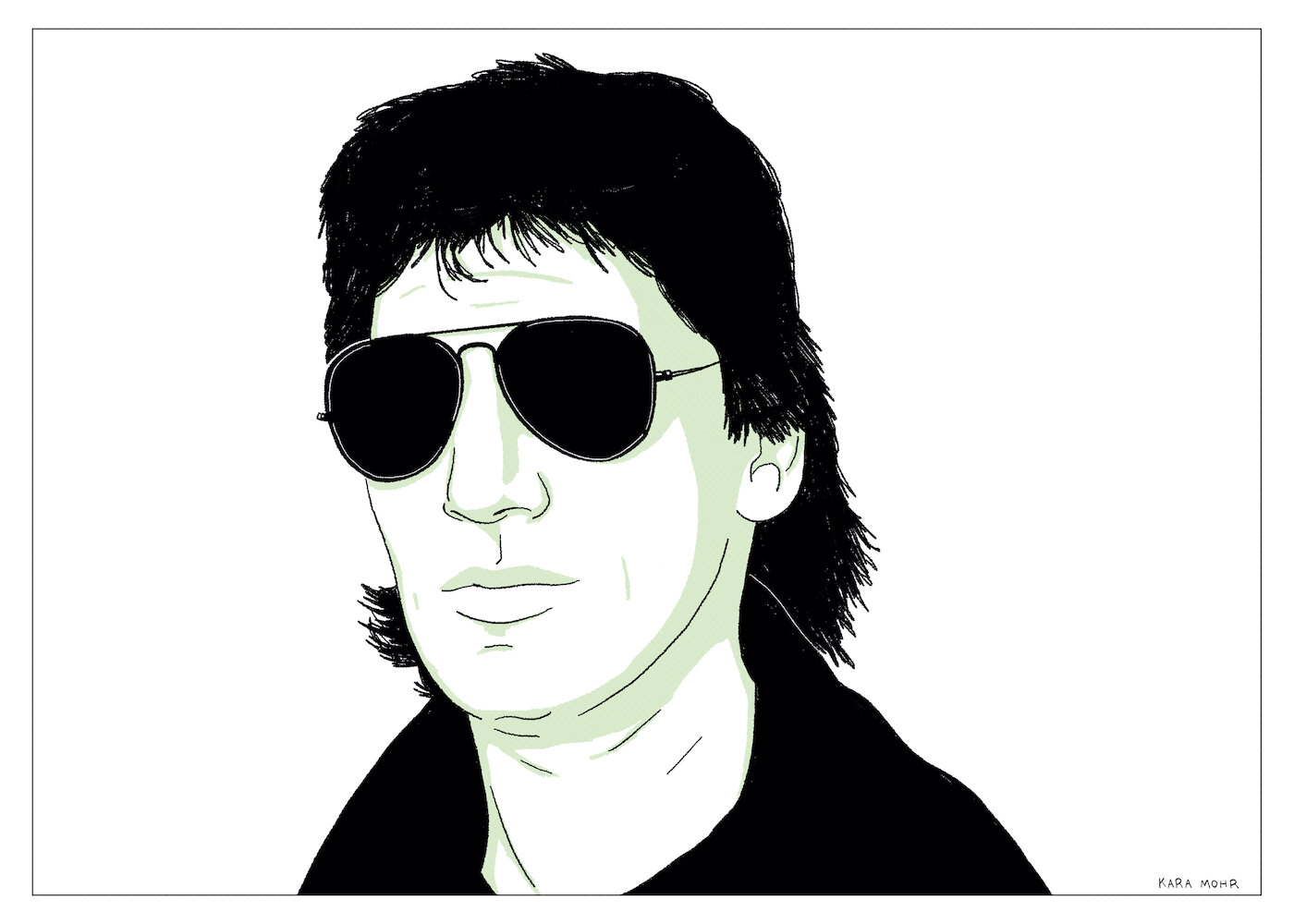
Roger Waters, “Radio K.A.O.S”
Having recently left Pink Floyd, Roger Waters made a concept album about Billy, a Welsh paraplegic who can hear radio waves. Yes, you heard that right. Billy lives with his twin brother Benny who works in the mines. On a drunken night, in protest of Thatcher-era mining policies, Benny throws a concrete block off a bridge and kills a taxi driver. Benny’s arrested and Billy is sent to LA to live with a relative. With the help of a cordless phone and a superpower (radio wave reading), Billy is able to hack into the defense systems of the whole planet and convince everyone there’s about to be a nuclear attack. Like most concept albums, “Radio K.A.O.S.” is unfathomable as prose and doesn’t exactly sparkle in song, either.

Jonathan Richman “I, Jonathan”
Eternally young at heart, Jonathan Richman amassed a prodigious catalogue between his legendary Modern Lovers’ albums and his solo records. And while many point to “I, Jonathan” as a high water mark, the truth is that most of his releases warrant consideration. Sometimes, he sings in Spanish. Sometimes, he sings Country Music songs. Sometimes, he sings children’s songs for the kids in all of us. But his superpower -- that thing that makes him better than anyone else -- was his ability to make us feel like we were driving with the radio on in 1972 and like we were sitting in the last days of summer in 1992.
